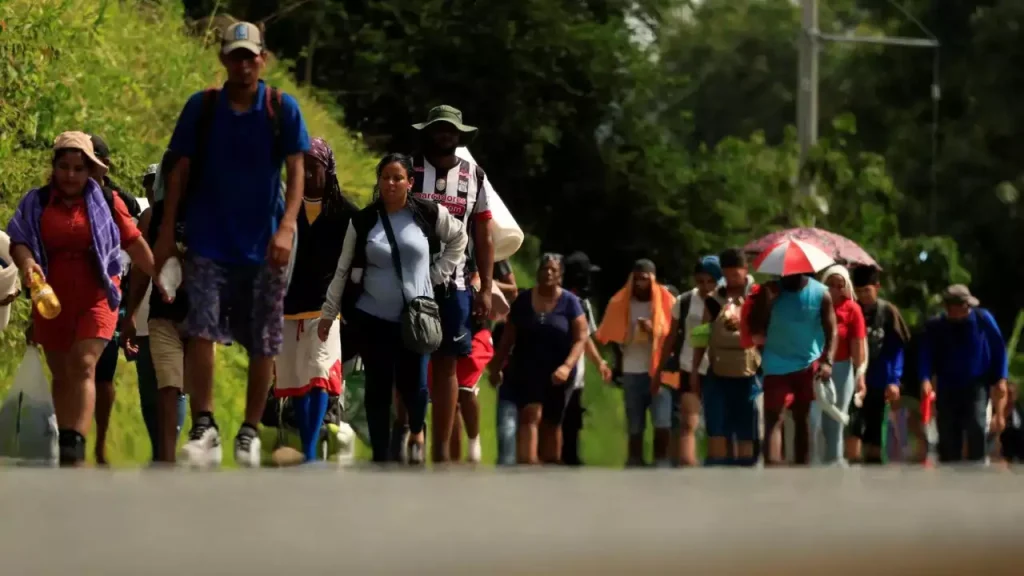BOSTON, Mass. — Refugee agencies in Massachusetts are rushing to bring as many people as possible into the U.S. before January 20, amid fears that immigration policies under President-elect Donald Trump could drastically change. Refugees like Saynab Elmi, who spent 11 years in an Ethiopian camp, are among those making the journey to reunite with loved ones after years of separation.
Elmi arrived at Logan Airport on December 18 with her son, Hirsi, and was reunited with her daughter, Hayat Ahmed, whom she hadn’t seen in a decade. “I started to cry,” said Elmi, 65, as her daughter translated her words.
Her story is just one example of the urgent push by resettlement agencies to help refugees before the political climate shifts.
Rushing Against the Clock
Local agencies, such as the International Institute of New England (IINE), have been working tirelessly to expedite the resettlement process. “We expect the doors to refugee resettlement to close or at least temporarily pause on January 20th,” said Xan Weber, senior vice president of IINE.
The organization had committed to resettling 308 people in Massachusetts before Inauguration Day. As of Thursday, 188 refugees had arrived, while flights for 15 others were canceled. Weber confirmed that at least 35 more individuals are expected to land before Monday.
Unfortunately, 40 people are scheduled to arrive after January 20, leaving their futures uncertain. “We’re very worried we’ll have to make heartbreaking calls to tell families their loved ones can’t come,” Weber said.
The Challenges of Housing
Finding housing for refugee families is one of the biggest hurdles for agencies. According to Lino Covarrubias, CEO of Jewish Family Service of Metrowest, the organization aimed to resettle 25 families before the deadline.
“Some families have four or five members, so it’s not just about numbers—it’s about housing,” Covarrubias explained. Refugees are placed in hotels, in-law apartments, or host families until permanent housing becomes available.
The Refugee Journey
Refugees go through years of extensive background checks, medical screenings, and security clearances before arriving in the U.S. For families like Elmi’s, the process is long and emotionally draining.
Originally from Somalia, Elmi applied for refugee reunification through her daughter. While Elmi and her son made it to the U.S., her other children remain stuck abroad, with no clear timeline for their arrival.
“I was scared when I heard Trump was coming back,” Elmi admitted. “When they told me I could go to America, I said, ‘God, thank you.’”
Funding and Support
Refugees receive $3,000 in federal funds to cover administrative costs and basic needs for their first three months, including housing. However, IINE estimates an additional $3,000 to $4,000 per person is needed to fill the gaps.
The Massachusetts Office of Refugees and Immigrants (ORI) has been working with agencies to expedite contracts and provide resources. “We are intensifying communication and coordination to support refugees and immigrants,” said ORI spokesperson Olivia James.
Stories of Hope and Uncertainty
Saw John Bright, an IINE staff member and political refugee from Burma, shared his own struggles. His family was supposed to arrive in December but remains stranded in a camp on the Thai-Burmese border.
“They got a green light from the U.S., but something is delaying their travel,” Bright said. He fears his family will remain stuck in the camp, where violence and instability continue to escalate.
The Bigger Picture
This push to resettle refugees highlights broader concerns about U.S. immigration policies. During his first term, Trump significantly reduced refugee admissions and cut funding for resettlement programs. Advocates worry these restrictions could return, leaving thousands in limbo.
How You Can Help
The community can play a role in supporting refugee resettlement efforts:
- Donate to local refugee organizations to help cover housing and basic needs.
- Volunteer your time or resources to support newly arrived families.
- Advocate for policies that protect and welcome refugees.
Looking Ahead
As January 20 approaches, the race to resettle refugees grows more urgent. Families like Elmi’s remind us of the human cost of political decisions and the importance of compassion in immigration policies.
While the future remains uncertain, agencies and communities continue to work tirelessly to provide hope and a new start for those seeking safety and opportunity in the U.S.
Disclaimer – Our editorial team has thoroughly fact-checked this article to ensure its accuracy and eliminate any potential misinformation. We are dedicated to upholding the highest standards of integrity in our content.





More Stories
Race to Resettle: Refugee Agencies Face Deadline as Inauguration Day Looms
Race to Resettle: Refugee Agencies Face Deadline as Inauguration Day Looms
Race to Resettle: Refugee Agencies Face Deadline as Inauguration Day Looms